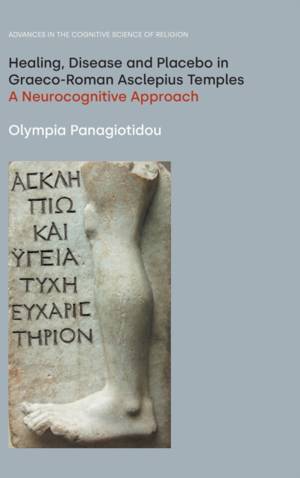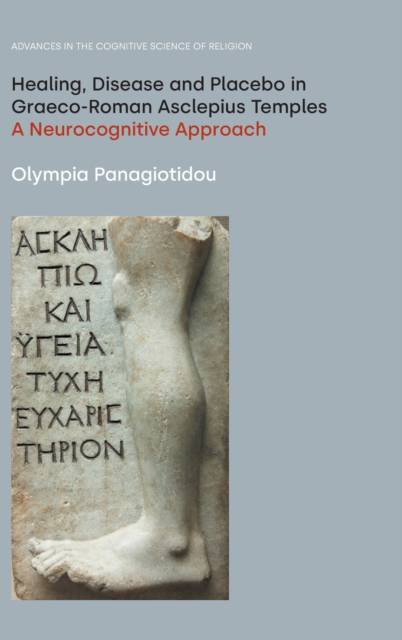
- Afhalen na 1 uur in een winkel met voorraad
- Gratis thuislevering in België
- Ruim aanbod met 7 miljoen producten
- Afhalen na 1 uur in een winkel met voorraad
- Gratis thuislevering in België
- Ruim aanbod met 7 miljoen producten
Healing, Disease and Placebo in Graeco-Roman Asclepius Temples
A Neurocognitive Approach
Olympia PanagiotidouOmschrijving
Healing, Disease and Placebo in Graeco-Roman Asclepius Temples narrates a story of religious healing that took place at sanctuaries dedicated to the ancient Greek god Asclepius, the asclepieia. The Asclepius cult, which attracted supplicants afflicted by various illnesses, appeared in Greece in the sixth century BCE, thrived in the Hellenistic period and spread throughout the Graeco-Roman world, only declining during the final dominance of Christianity in the fifth century CE.
This study analyses inscriptions from the asclepieia, which were supposed to record personal stories of healing. Using the archaeological and historical evidence it looks at the placebo effect and the role it may have played in healing at the Asclepius sanctuaries in light of contemporary theories and neurocognitive research on placebo effects. It explores the specific biological, cognitive, and psychological processes, as well as the external cultural and social influences, that would have shaped personal healing experiences.
It is the first historical study of the Asclepius cult that integrates theoretical insights into the human mind provided by neurocognitive sciences. It can be considered a cognitive historiography of patients who visited the asclepieia as supplicants that aims to deepen our understanding of past minds and, more generally, of human cognition.
Specificaties
Betrokkenen
- Auteur(s):
- Uitgeverij:
Inhoud
- Aantal bladzijden:
- 228
- Taal:
- Engels
- Reeks:
Eigenschappen
- Productcode (EAN):
- 9781800501416
- Verschijningsdatum:
- 11/02/2022
- Uitvoering:
- Hardcover
- Formaat:
- Genaaid
- Afmetingen:
- 156 mm x 234 mm
- Gewicht:
- 498 g

Alleen bij Standaard Boekhandel
Beoordelingen
We publiceren alleen reviews die voldoen aan de voorwaarden voor reviews. Bekijk onze voorwaarden voor reviews.












